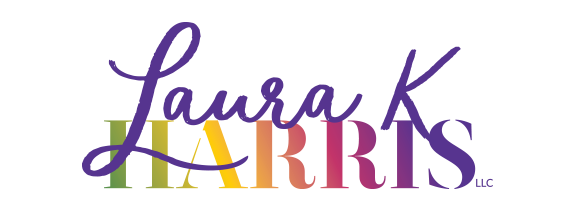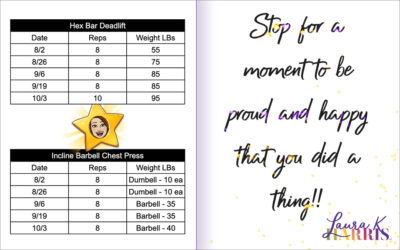Most of the time we are meaner to ourselves that we would ever be to other people. How many times or how often do you look in the mirror and an off-hand comment arrises that is negative — ranging from “I don’t like my hair today” to the more harsh “Ugh, I’m so fat and gross.” It isn’t even just the actual statements, it’s actually the tone, the derision and disrespect and sometimes our the pure dislike of ourselves that comes through.
Awareness of and eliminating this horrible negative, ugly self-talk is very important to any kind of growth.
It might seem like punitive statements will help us learn and change or serve to remind us how we can do better next time, but in reality, all it is doing is keeping us mired in the loop of self-destructive behavior. It also takes away joy and self-satisfaction for the wins we should be celebrating.
So, how do we get past this negative self-talk?
#1 Awareness
Maybe you don’t even realize how often this is happening because it is really insidious — a dangerous habit and reaction that creeps in. First off, start paying attention to how often judgmental comments arise, both when you are criticizing yourself and others. This is what I would call be an observer of your thoughts. Don’t think about change yet, just work on being aware. Also, pay attention to the topics. Is it mostly about physical appearance? Money? Parenting? I bet that whenever the voices is loudest and meanest, those are the very areas you would like to improve or change the most.
#2 Forgiveness
We are taught from a very young age how to say “I’m sorry” to others for minor injustices, such as pushing someone on the playground, cheating in a game of kickball, or interrupting when someone is talking. We’re taught to have empathy and sympathy for people who are going through tough times in life, such as illness or when someone passes away.
But there’s a gray area in between that isn’t addressed or acknowledged in society and that is the self-deprecation and self-judgment that occurs whenever we make a mistake or do something we think we shouldn’t. We are never really taught how to forgive ourselves.
Forgiving yourself for whatever the (perceived) wrongdoing might be is easier said than done. It also doesn’t meant that you’re giving yourself a pass, especially if the decision or action is self-sabotaging. In the words of the wonderful writer Gretchen Rubin (of the book The Happier Project and the Happier podcast), “You can accept yourself and expect more from yourself.”
You do not need to hold onto what causes you pain in order to grow. Again, the opposite will probably happen — you’ll find that you will just keep running into the same issue over and over again.
Putting this in action
Here is an example for you! One day I was particularly stressed with production deadlines. My go-to in this scenario is always eating. It numbs the anxiety, and quite literally the food makes my nervous energy dissipate (or at least my awareness of it). BUT I tend to overeat — leaving myself feeling sick, yucky and stuffed. Plexus Slim has been a game changer for me, as I don’t have to rely on willpower or self-coaching because my belly and brain are communicating so well. When I have my #pinkdrink it is much easier for me to deal with my default stress-management mechanism of eating. One day, however, my emotions were totally ruling the roost and nothing the rest of my brain or body was saying was overriding this innate desire to eat. I was like a zombie in the pantry.
Now, I had a few ways I could deal with this… the day was over. There was nothing I could do to change what I did. Previously, at the end of the day, I probably would have been laying in bed berating myself “How did you let that happen? I know better! I wasn’t even hungry. Tomorrow I’ll do better because I feel disgusting and like such a loser.” Isn’t that awful? Doesn’t it make you cringe just reading it?
But I chose instead to use a different (more positive) framework instead, which is based on Ho’oponopono technique — the Hawaiian tradition of forgiveness that I was first introduced to by the amazing Denise Duffield-Thomas, from Get Rich Lucky Bitch.
Here’s an interesting article about Ho’oponopono that explains it in more detail, but basically there are four simple phrases you repeat after you state the situation (or person) you want to forgive. The whole point of this is NOT to minimize whatever is going on, rather it is to release the negative energy around it.
You don’t have to write it out, unless you want to; you can also say it. So in this case, the litany in my head was not one that belittled myself, but one meant to free me from a restrictive and painful perspective. I didn’t give myself a “pass” on the mistake, rather I chose to take the failure and release it. And then use that script to replace the negative self-talk.
Below is an example of how I forgave myself on that day when I was stress eating. The phrases used in Ho’oponopono are: I’m sorry, I forgive you, Thank you, I love you.
I’m Sorry
I’m sorry that I didn’t pay attention to my actual nutritional needs; that I didn’t stop to be aware and give myself the chance to self-coach or use the principles that I teach on my own self. I’m sorry for looking at my legs with disgust and calling myself a hypocrite. I’m sorry for completely ignoring the voice that was telling me I didn’t really want all those macadamia nuts. I’m sorry for not getting enough sleep and yelling at the kids. I’m sorry for the mindlessness of it that is so far from how I truly want to live.
I Forgive You
I forgive you for not stopping and pausing through the day for a moment of quiet or to reset. I forgive you for not working out even though it would’ve helped. I forgive you for not setting boundaries with your time and energy and being unrealistic with what needed to be done. I forgive you for putting food blinders on in order to block whatever was happening emotionally. I forgive you for treating my body this way and letting it bear the brunt of my choices and stress that my mind was allowing and even encouraging.
Thank You
Thank you to my body for its health and for feeling strong, even when I don’t make the best decisions. Thank you for tomorrow when I have the chance to do this again with more respect and grace and awareness. Thank your all the wins I did experience today, even though I didn’t stop to celebrate or acknowledge them at the moment.
- money being deposited
- a new Plexus customer
- my generosity in donating the furniture
- giving myself some downtown and writing
- just letting myself feel icky with no judgement or
- for sticking with my productivity plan
- for not getting freaked out and crabby because the house is messy
- for reading with my kids and snuggling
- thank you to the lovely family and friends who I talked to and leaned on
I Love You
I love you for taking the time to work through this, for acknowledging it. I love you for the tenderness (that doesn’t equal weakness). I love you for sharing some raw and personal. I love you for realizing that what you DO does not define who you ARE. I love you for remembering that food is neutral and that even though I overate, I’m not a bad person and the foods weren’t bad, that was simply the circumstances and facts of that day.
#3 Reframe
So, it’s my choice now how to handle that circumstance. And I choose to have a different one going forward — one that supports me in the model or life I want to live. So, more sleep; don’t eat when I’m full; drink another Plexus Slim to help me if I need it because it’s ok to ask for help; let go of the desk and the to do list and find time to move and play, even if it’s just for a little bit.
I’m thankful for this failure because it is a teachable moment, hopefully for you, and definitely for me!!!
Next time when you experience a situation or circumstance that made or makes you feel stressed and out of control or upset (it doesn’t NOT have to be food related), try the forgiveness technique.
I’ve done this in my head, just briefly going over the 4 phrases, and it was like an immediate interruption, allowing me to get away from the looping negativity that our brains can get stuck in, so that I could get on with my life and spend time enjoying doing what I want without guilt or shame.
Doesn’t that sound lovely!!?
Now, take those words of love and thankfulness and use that for your self-talk!!! Your *healthy* dose of reality is that forgiveness works… just try it!




